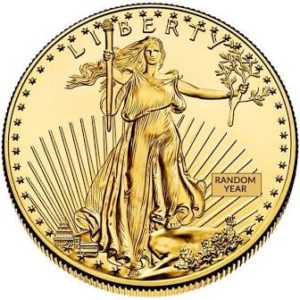

An article I read for yesterday’s Monetary Theory and Policy Class referenced a section of Ludwig von Mises‘s magnus opus, Human Action. I had read the whole thing cover to cover in 1970-71, the year I took off to study economics on my own, but had read only small parts since.
But, as happens when I read one small part of Human Action, I start noticing other parts that are interesting. I liked Mises’s take on Keynes’s famous statement that gold is a “barbarous relic.” Here it is:
Men have chosen the precious metals gold and silver for the money service on account of their mineralogical, physical, and chemical features. The use of money in a market economy is a praxeologically necessary fact. [DRH note: if you wonder why, Google, Bing, or Brave “double coincidence of wants.”] That gold–and not something else–is used as money is merely a historical fact and as such cannot be conceived by catallactics. In monetary history too, as in all other branches of history, one must resort to historical understanding. If one takes pleasure in calling the gold standard a “barbarous relic,”* one cannot object to the application of the same term to every historically determined institution. Then the fact that the British speak English–and not Danish, German, or French–is a barbarous relic too, and every Briton who opposes the substitution of Esperanto for English is no less dogmatic and orthodox than those who do not wax rapturous about the plans for a managed currency.
*The footnote references “Lord Keynes in the speech delivered before the House of Lords, May 23, 1944.”

READER COMMENTS
Philo
Mar 25 2021 at 12:34pm
Well, the costs of a transition from English to Esperanto are pretty high; Esperanto is not enough better than English to justify the change. But once the dollar, convertible into a weight to gold, is in general use, the transition to a fiat dollar is easy: just abrogate convertibility. So if the fiat-dollar arrangement is really even moderately better than the gold-dollar one, the change should be made.
David Henderson
Mar 25 2021 at 1:00pm
You wrote:
And it turns out that it’s substantially worse. One of the many things I’ve learned in this class.
Thomas Lee Hutcheson
Mar 27 2021 at 8:11am
The quote takes on the “relic” part of the phrase, whereas Keynes obviously was focusing on the “barbarous” part. Looking back on the decision of the UK to reestablish the pre-war pound/dollar gold price and the pre-Depression French gold buying policy it’s not hard to think of gold as “barbarous.” Of course there are some deadweight loss in having price controls in the gold market.
Comments are closed.